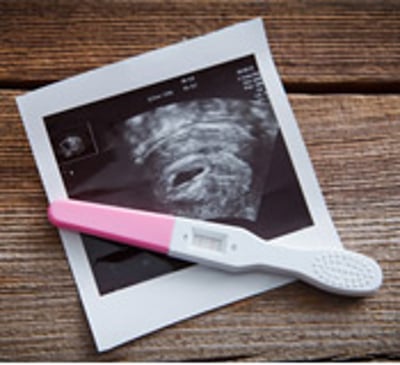FORCE's eXamining the Relevance of Articles for You (XRAY) program looks behind the headlines of cancer news to help you understand what the research means for you.
XRAY is a reliable source of hereditary cancer research-related news and information.
Learn more about the XRAY program
Categories Palliative Care, Quality of Life, Survivorship
Study : Removing ovaries before age 50 may increase the risk of chronic conditions for some women
Most relevant for: Women under 50 years of age who have had or are considering removing their ovaries
Removal of ovaries and fallopian tubes prevents ovarian cancer, but it may come with other health risks. Experts recommend removal of ovaries and fallopian tubes in women at high risk for ovarian cancer due to inherited mutations in BRCA or other genes linked to ovarian cancer risk. For these high-risk women the benefit of ovarian cancer prevention outweighs the risk of long-term complications. Based on a recent study, some researchers feel that for women who are not at increased risk for cancer, the risk for some chronic conditions is too high to consider removal of both ovaries. (11/1/16)
Read More
Relevance: High


Quality of Writing: High


Article : Huffington Post article brings attention to metastatic breast cancer
Relevance: High


Quality of Writing: High


Most relevant for: People diagnosed with metastatic breast cancer
Barbara Jacoby's Huffington Post piece, "How do breast cancer and metastatic breast cancer differ?" emphasizes the need for more treatment options for patients with advanced breast cancer.
Read More
Study : How beneficial is online communication after a new diagnosis of breast cancer?
Most relevant for:
Newly diagnosed breast cancer patients often use online communication to find more information about their diagnoses and treatment options. But does online communication benefit these patients' decision-making process? (8/30/16)
Read More
Relevance: Medium-High


Strength of Science: Medium-High


Research Timeline: Human Research


Study : Can acupressure be used to treat cancer-related fatigue?
Relevance: Medium-High


Strength of Science: Medium-High


Research Timeline: Human Research


Most relevant for: Breast cancer survivors and people in treatment who are experiencing fatigue
Breast cancer survivors commonly report experiencing considerable fatigue, which can lead to sleep problems and poor quality of life. Yet, there are no good therapies for these patients. This research study looks at whether self-administered acupressure can help breast cancer survivors with their fatigue. (8/9/16)
Read More
Relevance: Medium-High


Strength of Science: Medium


Research Timeline: Human Research


Study : Is there a link between exercise and memory in breast cancer survivors?
Relevance: Medium-High


Strength of Science: Medium


Research Timeline: Human Research


Most relevant for: People diagnosed with early stage breast cancer
Exercise has many health benefits, but can it also help improve memory for breast cancer survivors? This research finds that breast cancer survivors who exercised more had less fatigue and distress (anxiety, depression, stress, and/or concern about recurrence) and scored better on memory tests. (8/2/16)
Read More
Relevance: Medium


Strength of Science: Medium


Research Timeline: Human Research


Study : Do BRCA mutations affect fertility?
Relevance: Medium


Strength of Science: Medium


Research Timeline: Human Research


Most relevant for: Women with a BRCA mutation who want to become pregnant
Age affects fertility. As women age, their ovaries release eggs that are not as healthy as those released in younger women. Fewer eggs are released each menstrual cycle as women age, making it harder for older women to become pregnant. Are women with BRCA mutations less fertile? Previous research suggested that BRCA mutations might affect women's fertility as she ages. A recent study found that BRCA1 mutation carriers may have slightly lower fertility than women without the same mutation, but more research is needed before this finding is useful for medical decision-making. (5/24/16)
Read More
Study : Financial burden affects quality of life of cancer survivors
Most relevant for: People diagnosed with cancer
Cancer-related financial burden can keep survivors from getting the care that they need, yet how this burden affects mental and physical health is still unknown. A study found that almost one-third of cancer survivors report having financial burden; those most likely to be affected were under age 65, female, members of racial or ethnic minority groups, and people who lack access to adequate insurance. (5/17/16)
Read More
Study : Factors that affect the ability to work in people with metastatic cancer
Most relevant for: People living with metastatic cancer
Some patients who live with metastatic cancer either want or need to continue working while coping with symptoms of their disease and treatment. A recent study that looked at over 600 people with metastatic breast, prostate, colon, or lung cancer found that about one-third of them continue working full or part time. People most likely to continue working were those undergoing hormonal treatment and those with less severe symptoms or side effects from treatment. (4/12/16)
Read More
Study : BRCA testing in young women with breast cancer
Most relevant for: Young women diagnosed with breast cancer who have not yet had genetic testing
National guidelines recommend genetic testing for BRCA mutations in young women who are diagnosed with breast cancer. However, little is known about how women decide to get testing, or how they use genetic information to decide on treatment options. This study found that genetic testing is increasing among young breast cancer survivors, and it explores some of the factors that play into patients’ decision making about genetic testing. (3/22/16)
Read More
Relevance: Medium-High


Strength of Science: Medium-High


Research Timeline: Post Approval


Study : Smoking before or after a breast cancer diagnosis associated with poorer breast cancer survival
Relevance: Medium-High


Strength of Science: Medium-High


Research Timeline: Post Approval


Most relevant for: People who smoke cigarettes
Cigarette smoking is an important public health issue that causes more than 480,000 deaths annually. Smoking increases the risk of many diseases, from heart disease to stroke. This research indicates that smoking before and or after a diagnosis of breast cancer affects survival, and also shows that it is never too late to quit smoking. (02/23/16)
Read More